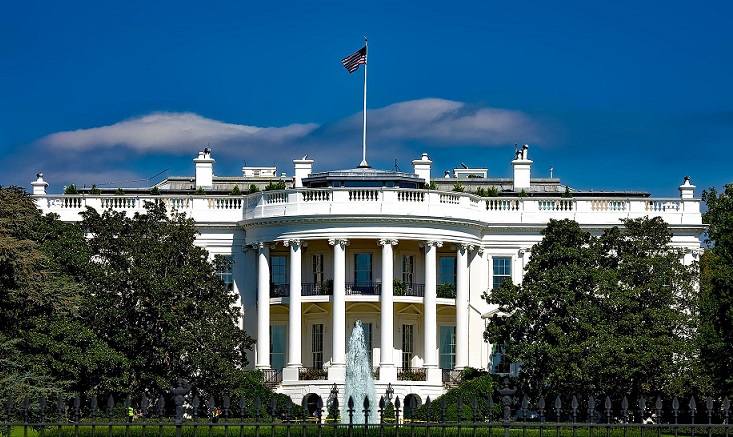The collective will has a wide margin to prevent those who are currently making decisions and governing from precipitating humanity into World War III and the Chinese proposal – or something similar – allows the nightmare of mass destruction to be just that, a nightmare that evaporates when we wake up.
 Juan Diego García
Juan Diego García
Colonial struggles between the great powers of capitalism led to the First World War, a conflict that did not manage to resolve the contradiction between those powers which extended until the Second World War, with the additional objective at that time of putting an end to the so-called ‘communist threat’.
Since 1945 a certain world peace has been established with the nuclear balance and the so-called ‘cold war’ and the formation of entities like the UN which are supposed to be mechanisms for balance and for the peaceful solution of world conflicts.
The break-up of the European part of really existing socialism seemed to leave the United States and its European allies as the planet’s dominant power and the sole arbiters of world conflicts.
However, Russia recovered relatively soon from the deep crisis that was the end of its socialism, resuming the old imperial conflict that pitted it against capitalist powers anxious to control its immense agricultural and mining natural resources. Even more decisive, People’s China – with its particular form of socialism – has not only taken a material leap without precedent but, according to all the indications, is on the way to becoming the world’s premier power.
That seems to be, in broad terms, the current scenario which can be seen not only in the Ukraine war but in many previous wars all over the planet, without forgetting Latin America, scene of other sorts of war in which the world’s current imperialist powers have a decisive role.
 The so-called ‘nuclear balance’ meant that instead of direct conflict between the powers, wars would be carried out in such a way that the direct actors are periphery countries and the metropolitan powers manoeuvre to be the decisive protagonists and achieve the same objectives as always: ensuring their supply of essential raw materials, controlling the markets and maintaining control of global trade routes.
The so-called ‘nuclear balance’ meant that instead of direct conflict between the powers, wars would be carried out in such a way that the direct actors are periphery countries and the metropolitan powers manoeuvre to be the decisive protagonists and achieve the same objectives as always: ensuring their supply of essential raw materials, controlling the markets and maintaining control of global trade routes.
This seems to be the current world order’s economic foundation which is complemented by the United Nations and its institutions tasked with ensuring, above all, the adequate functioning of trade (WTO), the financial system (IMF and the World Bank) and other entities of lesser importance which handle various matters.
International legal systems, which should be mechanisms to enforce a supposed world law, only affect periphery countries as the great powers even allow themselves the luxury of not recognising their existence and, of course, of not complying with their resolutions. As a certain complement in some cases and as a defensive reaction in others, some groups of countries have regional integration institutions. Some are of significant weight (the European Union, for example) because they are made up of countries of great economic solvency, while others like the OAS (Organisation of American States) are no more than US colonial administration offices in the region.
 It should be highlighted that some regional integration processes in Asia and Africa allow periphery countries a certain margin of sovereignty, as can be seen with the CELAC (Community of Latin American and Caribbean States) in Latin America and the Caribbean.
It should be highlighted that some regional integration processes in Asia and Africa allow periphery countries a certain margin of sovereignty, as can be seen with the CELAC (Community of Latin American and Caribbean States) in Latin America and the Caribbean.
In this context – and particularly given the West’s current war against Russia and another possible one against China – pessimistic voices about a quite possible Third World War are striking, while optimistic ones suggest that such a war would be impossible due to the destructive power of atomic weapons and that the most likely thing is that those conflicts in which poor countries are the direct protagonists are maintained.
From this perspective and as a possible positive solution, consideration should be given to the proposal by China, which has made an appeal to reach arrangements not just for the current conflict in Ukraine but to achieve global solutions that ensure a harmonious relationship. A relationship that is above all between the powers when it comes to distributing markets, raw materials and communication routes, automatically ruling out the use of military force or any other form of subjection or sabotage (technological warfare, for example).
For this proposal to be viable it is essential that the United States accepts that it is no longer the dominant power and it must be willing to recognise the interests of other powers for the sake of its own security.
 No less important is that the decisive nations of Europe (Germany, France and the United Kingdom, especially) achieve greater autonomy with regard to the United States and opt to reform NATO and, in the best scenario, establish their own independent military force, and seek a different and mutually beneficial relationship with Russia and especially China. No small number of prominent voices have proposed this on the Old Continent.
No less important is that the decisive nations of Europe (Germany, France and the United Kingdom, especially) achieve greater autonomy with regard to the United States and opt to reform NATO and, in the best scenario, establish their own independent military force, and seek a different and mutually beneficial relationship with Russia and especially China. No small number of prominent voices have proposed this on the Old Continent.
The current conflict in Ukraine allows us, among other things, to recognise the West’s loss of influence, especially that of the United States which has only obtained European support (quite nuanced if events are analysed beyond the war propaganda); in contrast, China appears to have consolidated its alliances, starting with the BRICs, a global integration organisation of the so-called ‘emerging powers’ no less than with other nations of equal importance.
Beijing is increasing its influence in Latin America and the Caribbean as much as in Africa and it is very significant that with very few exceptions, in the developing world the West has not found clear support for its adventure in Ukraine. Even governments that formally condemn the war always adjust their positions calling for a negotiated outcome and several are maintaining and broadening their economic relationships with China and Russia, provoking deep concern in Washington and among its European allies.
 From this perspective it could be considered that the Chinese proposal has solid foundations and will find much support in the periphery (the poor world) and it is absurd to think it will provoke positive reactions in Europe itself and even in the United States, since with the exception of arms producers and the energy monopolies, that war and the West’s military strategy in general only benefits minority groups belonging to the dominant class of those countries. Moreover, the war is creating – as the case of Ukraine demonstrates clearly – disruption in the working of the economy and growing discontent among the population. This without mentioning the additional problems that make the management of the economic crises that affect the system periodically even more difficult.
From this perspective it could be considered that the Chinese proposal has solid foundations and will find much support in the periphery (the poor world) and it is absurd to think it will provoke positive reactions in Europe itself and even in the United States, since with the exception of arms producers and the energy monopolies, that war and the West’s military strategy in general only benefits minority groups belonging to the dominant class of those countries. Moreover, the war is creating – as the case of Ukraine demonstrates clearly – disruption in the working of the economy and growing discontent among the population. This without mentioning the additional problems that make the management of the economic crises that affect the system periodically even more difficult.
(Translated by Philip Walker – Email: philipwalkertranslation@gmail.com) – Photos: Pixabay












.jpg)












